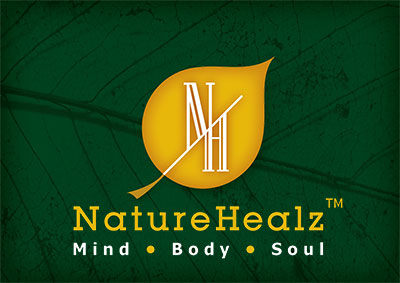Unraveling the Truth behind Supplements – Natural Vs. Synthetic Vitamins
Today, a vast majority of adults pop at least a couple of multivitamins daily, to make up for the nutrient deficiencies in their daily diet. But, these pills you take, do they cause more harm than good?
Before, we take a look at the benefits (or rather the lack of) of synthetic vitamins, let’s start from the beginning.
Do you know the real reason why you eat?
It’s not because you’re craving a slice of rich, creamy chocolate cake or because you’re feeling hungry. On the other hand, the real reasons for eating are: to generate energy and to provide your body with essential nutrients.
The problem here is that due to improper diets, hectic lifestyles, pollutants, adulterants, preservatives and other chemicals, the foods we eat have little or no nutrient value. This is the reason, why supplement bottles line the aisles at your local supermarket or pharmacy.
The bad news?
Not all supplements are equal. Over 90% of supplements sold in the market today are synthetic and have been manufactured in a lab, by a bunch of scientists, who are trying to mimic Mother Nature. When you consume whole foods, you aren’t eating a particular nutrient. Instead, you’re consuming a full array of minerals, vitamins, enzymes and other co-factors, that all work together for the optimal functioning of your body.
On the other hand, synthetic supplements that come in a bottle isolate a particular vitamin and don’t do a whole lot of good to your body.
Natural Vitamins Vs. Synthetic Vitamins – The Basic Differences
The primary issue with synthetic vitamins is that they are manufactured in a lab, using chemicals that do not occur in natural food sources. They are made to mimic the natural vitamins that are present in foods.
Natural supplements, on the other hand, are derived directly from plants that contain the required vitamins in natural form. They carry the right balance of vitamins, minerals, and enzymes that are recognized by the body.
Synthetic vitamins, on the other hand, lack the co-factors and transporters since they have been isolated. This means these vitamins aren’t recognized by the body and cannot be used in the same way as natural supplements.
Isolated vitamins aren’t absorbed by your body and either end up getting stored in your cells or are excreted. Additionally, synthetic supplements do not contain the sufficient trace minerals, and your body ends up using its mineral reserve, which could lead to mineral deficiencies.
Why Isolating One Vitamin isn’t all that Beneficial
Nutrients need transporters, co-factors, enzymes and other minerals and vitamins, to be adequately absorbed by the body. For instance, a single carrot contains over 200 nutrients. This balance of all nutrients is what makes a carrot the best source of Vitamin A.
Similarly, when you think of an orange, you think of Vitamin C. However, all the other “little guys” (minerals, enzymes, co-factors, and transporters) play a crucial role in ensuring that an orange provides you with the right doses of Vitamin C.
Remember that there are no foods in nature that have mega-doses of Vitamin C, say 10,000 mg like those advertised on supplement bottles.
The Dangers of Consuming Synthetic Supplements
A perfect example to illustrate the dangers of synthetic vitamins is “Calcium.” There are several forms of calcium supplements in the market like calcium citrate, calcium carbonate, calcium chelate and many more. All these are synthetically made and could pose serious risks to your long-term health.
For instance, studies show that calcium supplements do little to make your bones stronger. On the other hand, they increase the risk of heart diseases. The reason for this is that most calcium supplements are made by finely grounding limestone rock (calcium carbonate). The human body can absorb only a tiny percentage of this calcium, and the rest is either excreted or forms a layer on your arteries. This layer of calcium deposited in your arteries causes calcification of arteries, which leads to heart attacks or strokes.
Another problem with consuming synthetic supplements is that we as human beings are hard-wired to believe, “more is better.” For instance, many people take Vitamin B1 (thiamine) to boost energy. Conversely, too much of this vitamin can cause fatigue. This leads you to increase your vitamin dose; thereby you get caught in the “vicious cycle of supplements.”
Plus, the human body can only absorb a pre-defined quantity of a vitamin. The more you consume, your body has to work harder to flush these out.
Ways to Determine if the Supplements you Take are Natural or Synthetic
With that said, not all multi-vitamins that claim to be natural, aren’t 100% natural. This is because most natural supplements sold in stores are made of synthetic materials. The manufacturer adds just a tiny quantity of an organic ingredient like alfalfa or soy, which makes them use the words, “whole food-based” or “natural” to sell these.
Unfortunately, supplements with as little as 10% of organic foods are labeled as “natural.” Here’s your guide to determine if the supplement you’re taking is natural or synthetic.
1. Take a look at the Ingredients
Ingredients that end in “acid” “ate” or “ic” is synthetic. Examples: ascorbic acid, calcium citrate, etc.
2. Don’t get misled by the Quantity
Remember that “more isn’t better” when it comes to supplements. For instance, small quantities of Vitamin C got from naturally occurring foods like gooseberries; oranges are always better than large amounts obtained from synthetically made supplements as ascorbic acid.
3. Look for the words “100 Percent Natural.”
When choosing supplements look for ones labeled as “100% natural” or “100% animal-based or plant-based.”
4. Take a look at the Food sources listed on the label
Check if the ingredients listed are known foods like fish, citrus fruits, vegetables, yeast, and others. If you come across something like “Vitamin C” or “B1”, then it’s synthetic.
5. Check if there are Salt Forms
Salts are added in various forms to synthetic minerals for stability. If you come across some of the salt forms like chloride, acetate, nitrate, hydrochloride, succinate, bitrate, etc., you can be pretty sure that it’s synthetic.
Final Thoughts
Try to get your dose of vitamins and minerals just the way Mother Nature intended – from plant-based and animal-based foods. If you have to take supplements, then make sure to remember these golden words of wisdom from Hippocrates,
“Let Food be The Medicine and Medicine be The Food.”
Reference Links :
- https://www.globalhealingcenter.com/natural-health/synthetic-vs-natural-vitamins/
- http://theaspenclinic.com/2017/03/08/natural-vs-synthetic-supplements-why-it-matters/
- https://www.healthline.com/nutrition/synthetic-vs-natural-nutrients#section5
- https://sunwarrior.com/healthhub/natural-vs-synthetic-vitamins
- https://thegoodhuman.com/synthetic-vs-natural-supplements-plus-a-complete-programme-of-supplementation/
- https://www.foodmatters.com/article/how-to-tell-if-a-vitamin-is-natural-or-synthetic
- http://www.doctoryourself.com/synthetic.html

